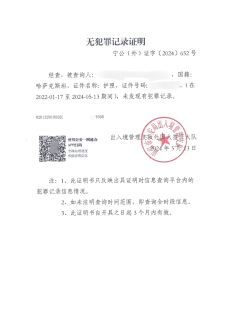
The State Council of the People's Republic of China (also known as the Central People's Government of the PRC) has posted a section on its official portal dedicated to apostille and consular legalization of documents.
The Chinese authorities emphasize that apostilled documents originating from countries participating in the 1961 Hague Convention can be used in the territory of the PRC without additional legalization. Documents issued in other countries must undergo the procedure of consular legalization.
The same is true for Chinese documents to be used overseas. The government says that the most commonly certified documents by apostille or consular legalization are birth certificates, death certificates, marriage certificates, certificates of no criminal record, certificates of kinship, education certificates, professional qualification certificates, deeds of trust, and powers of attorney.
Documents for apostille and consular legalization are accepted by local departments of the Ministry of Foreign Affairs. Some of them are authorized to carry out certification independently, others transfer them to the central office of the Ministry or to authorized local structures of the Ministry of Foreign Affairs.
There are two terms for apostille and consular legalization in China: standard (4 working days) and express (2 working days). In the case of consular legalization, the time for procedures carried out in foreign consulates is not taken into account. An official government fee is paid for expedited legalization.
Those who wish can receive the document certification service by mail.
China joined the Hague Conference in 1987, but for a long time did not ratify the Apostille Convention, being the largest country in the world that did not have a simplified procedure for legalizing documents. But on November 7, 2023, the Apostille Convention entered into force in the People's Republic of China, introducing significant changes to the procedure for legalizing official documents. Now the process of exchanging official documents, in particular between Russia and China, has become simpler and more efficient. Thus, mainland China became the 124th country using the apostille procedure for documents.India has spoken out against China's accession to the Hague Convention, so the apostille will not be used in relations between these two countries. The government agency authorized to issue apostilles in mainland China is the Ministry of Foreign Affairs of the PRC. Apostilles can also be issued by authorized representatives of the Foreign Affairs Offices of the relevant local People's Governments of China.
An apostille is an international standardized form of filling in information about the legality of a document for presentation in the territory of states and countries that recognize this form of legalization. If an apostille is placed on a "paper" document, it is usually a special stamp. It is placed on the back of the document or on a special sheet sewn to it.
What is an apostille?
In our video, we tell you what an apostille is, why it is needed, how and where it can be done, and also about the history of document apostilling.
If you need to affix an apostille to a document issued in a foreign country, please contact Schmidt & Schmidt.
We provide apostille services in more than 100 countries worldwide.





